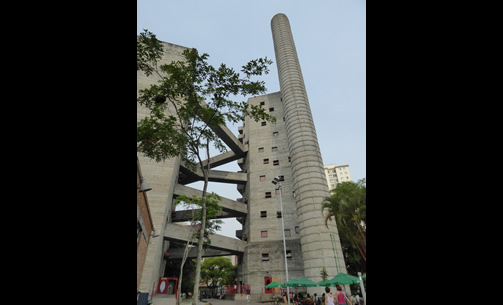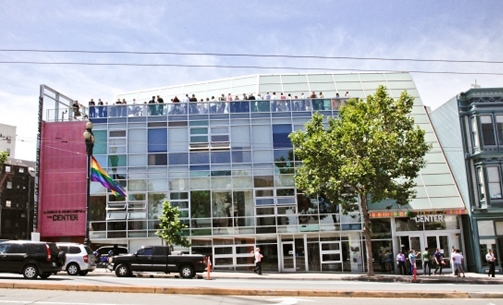To Enter
Here are the ground rules:
1) Your Proposal must be for participation in a program, conference, or specific project organized by an academic, institutional, or governmental or non-governmental social organization outside of your school.
2) The purpose of your project is to further your understanding of the social art of architecture by allowing you to study first-hand some aspect of this year's topic – Architecture Reveals Communities -- you have identified in this year’s BERKELEY PRIZE Essay submittal.
3) U.S. CITIZENS NOTE: Proposals may not be made to visit or study in countries with adverse travel advisories as issued by the United States Department of State. For all students, the BERKELEY PRIZE will not fund travel to countries currently in armed conflict.
4) Travel must occur in the summer of 2017 during your academic institution’s summer break (Northern Hemisphere schools), or in the winter of 2017 (Southern Hemisphere schools).
Submission requirements:
1) A 1250-word Proposal to include:
(a) A description of the program and a persuasive argument why this program will benefit your education;
(b) An itinerary for the entire period of travel; and
(c) A budget covering all anticipated expenses, including any program fees.
2) Reference to published material regarding the program, preferably a web site address that includes the name of a contact person.
3) A letter of recommendation from a Faculty member in your academic institution who is familiar with your Proposal and who will confirm that your Proposal is suited to your abilities.
4) Prior to receiving any funding, you will be asked to submit a travel Indemnification form provided by the BERKELEY PRIZE and a letter confirming that you are in adequate health to undertake the travel you propose. (NOTE: The BERKELEY PRIZE will pay for a one-time, health insurance policy for the length of your travel.)
Awards:
1) The BERKELEY PRIZE will provide a fixed stipend of USD3700 for each Travel Fellowship that is awarded. Winning students whose budgets exceed the prize limit will be asked to prove that they have the additional funds needed to fully complete their proposed itinerary.
2) The award is provisional, based upon your ability to provide the BERKELEY PRIZE Committee with the required details and documents related to your Proposal for your travel and study program.
Submission:
SUBMIT YOUR TRAVEL FELLOWSHIP PROPOSAL NOW
If you are ready to submit your Proposal and Letter of Recommendation, please follow the link above. You may return as many times as you like to modify your Proposal. Please scan your letter of recommendation. These can be uploaded directly to your Application page.
NOTE: If you entered the Essay Competition as a team, each member is eligible to apply for the Travel Fellowship individually. To do so, the second teammate should create a new account, then notify the administrator at info@berkeleyprize.org in order to be advanced to Semifinalist and allowed to participate.
Proposals due any time before 23:59 GMT, March 12, 2017
|
|
|
 THE ATENEO MERCANTIL DE VALENCIA (The Ateneo Mercantile Club of Valencia), Valencia, Spain, 1879. The Ateneo is located directly across form the City Hall and served the traditional, male, business community of Valencia through most of the 20th century. Now open by membership to the entire city, the club sponsors card clubs, art exhibits, film festivals, cultural and business symposia, and has a restaurant and bar available to the public. (Contributor: Benjamin Clavan)
 DIKSHA BHUMI - THE BABASHAB AMBEDKAR MEMORIAL COMPLEX, Dalit Buddhist Community of Nagpur, Maharashtra, India. (Contributor: Padma Maitland)
 BIBIA-ELEGU CROSS-BORDER MARKET (proposed), community market, Elegu Town, Uganda-South Sudan Border. (Contributor: Benard Acellam)  PHONGSAVAN, Hmong Market and Food Court, Milwaukee, U.S.A. The building, a typical United States-vernacular commercial structure was formerly an auto parts store that is located in a strip of other commercial businesses. There is no formal sign except for several small placards advertisingHmong businesses. It has become a center for the large minority population of Hmong who now live in the city. See also, the Hmong American Friendship Association, Inc. building, located in another repurposed commercial structure in the city. (Contributor, Arjit Sen, suggested the Hmong community buildings.)
 ST. MARK'S EPISCOPAL CHURCH AND RELIGIOUS COMMUNITY CENTER, Milwaukee, U.S.A. (Contributor: Arijit Sen)  STRAWBERRY CREEK LODGE, Berkeley, U.S.A. A senior affordable housing community of 150 households. (Contributor: Raymond Lifchez)  CONGREGATION BETH ISRAEL, Berkeley, U.S.A. A Modern Jewish Orthodox synagogue, this was the first synagogue in Berkeley. Established in 1924 as the Berkeley Hebrew Center, it traces its origins to the First Hebrew Congregation of Berkeley, founded in 1909. The latest structure was completed in 2005. (Contributor: Raymond Lifchez)  YMCA of the Central Bay Area, Berkeley, U.S.A. A registered historic landmark built in 1910, expanded in 1960 and 1994. (Contributor: Raymond Lifchez)  HAGIA SOPHIA, Istanbul, Turkey. Former Greek Orthodox basilica and Byzantine masterpiece completed in 537, converted into an imperial mosque in 1453, and declared a museum in 1935, representing a variety of communities for nearly 1500 years. (Contributor: Itamar Landau)  FRESNO BUDDHIST TEMPLE, Fresno, California, U.S.A. (Contributor: Daves Rossell)  SOCIALIST HALL, Butte, Montana, U.S.A. (Contributor: Daves Rossell)  COMMUNITY HAIR CARE CENTER, Savannah, Georgia, U.S.A. (Contributor: Daves Rossell)  JERUSALEM INTERNATIONAL YMCA, 1933, Jerusalem, Israel. Arthur Loomis Harmon, SHREVE, LAMB AND HARMON, Architect. The Young Men's Christian Association (YMCA) building is celebrated as a wellspring of cultural, athletic, social and intellectual life for all who live in Israel and visitors to the country. (Contributor: Raymond Lifchez)  CCOO (COMISIONES OBERAS DEL PAIS VALENCIANO) BUILDING, Valencia, Spain. The Country Workers’ Commission headquarters in the city, serving the community of workers throughout the region. (Contributor: Benjamin Clavan)  SESC (SERVIÇ0 SOCIAL DO COMÉRCIO) POMPEIA FACTORY PROJECT, Sao Paolo, Brazil, 1986. The SESC is a Brazilian non-profit private institution started by business owners aimed primarily for the welfare of their employees and their families. Its revenues come from a 1.5 percent payroll tax on commerce workers and thus is widely seen as representing the community of workers. This leisure center consists of a renovated factory and two new, five floor tower blocks. The complex contains tennis courts, pools, workshop areas, a library, "living rooms", exhibition halls, auditorium(s), a restaurant and a large solarium. Architect, Linda Bo Bardi. (One of two photos. Contributor: Benjamin Clavan)  SESC (SERVIÇ0 SOCIAL DO COMÉRCIO) POMPEIA FACTORY PROJECT, Sao Paolo, Brazil, 1986. The SESC is a Brazilian non-profit private institution started by business owners aimed primarily for the welfare of their employees and their families. Its revenues come from a 1.5 percent payroll tax on commerce workers and thus is widely seen as representing the community of workers. This leisure center consists of a renovated factory and two new, five floor tower blocks. The complex contains tennis courts, pools, workshop areas, a library, "living rooms", exhibition halls, auditorium(s), a restaurant and a large solarium. Architect, Linda Bo Bardi. (One of two photos. Contributor: Benjamin Clavan)  CLAREMONT TENNIS CLUB, Berkeley, USA. (Contributor: Raymond Lifchez)  FIRST AFRICAN METHODIST CHURCH, Oakland, U.S.A., 1902. Congregation founded by free African Americans in 1816 as part of a nationwide movement in the United States. (Contributor: Raymond Lifchez)  MOSQUE AND MINARET, Village of Teqoa, south-east of Bethlehem, Palestine. (Contributor: Shimon Dotan)  LGBT CENTER, Tel-Aviv, Israel: Formerly, the General Federation of Students and Young Workers Center completed in 1940; later re-purposed as the Dov Hoz professional school; and since 2008 Israel's first Lesbian, Gay, Bisexual, and Transgender public gathering place. (Contributor: Robert Ungar)  SCUOLA DI SAN NICOLO DEI GRECI, Venice, Italy. Built in 1539 as the center for a Greek fraternal organization dedicated to the spiritual, social, and economic well-being of its members. (Contributor: Raymond Lifchez)  FRIENDSHIP CENTRE, Gaibandha, Bangladesh. Kashef Mahboob Chowdhury/URBANA architects, 2011. Built by an NGO which works with some of the poorest in the country who live mainly in riverine islands (chars) with very limited access and opportunities, Friendship uses the facility for its own training programs and also rents out spaces for meetings, training, conferences etc. to further its role as a new focus for the community. (Contributor: Nezar AlSayyad, photo at: http://www.archdaily.com/423706/friendship-centre-kashef-mahboob-chowdhury-urbana)  BERKELEY FRIENDS MEETINGHOUSE, Berkeley, USA. The Meetinghouse is a gathering place for Quakers, a Christian religious denomination that believes in service and pacifism. (Contributor: Raymond Lifchez)  SRI EKAMBARESWARAR TEMPLE at Kanchipuram, Tamil Nadu, India. Popularly known as Ekambara Nathar temple, this large complex, originally built by the Pallava dynasty (4th to 9th Century), was later reconstructed by the Chola and Vijayanagar rulers. Although the motivating force for the temple is the worship of the Hindu Lord Shiva, its use is - and probably always has been - both religious and secular, thus serving the local population in a multitude of ways. (Contributor: Paul Broches)  THE SF LGBT CENTER, San Francisco, USA. Cee/Pfau Collaborative, 2000. The LGBT Center was established in the 1970s to connect the diverse lesbian, gay, bi-sexual, and trans communities with important resources. (Contributor: Thea Chroman).
|
|

























